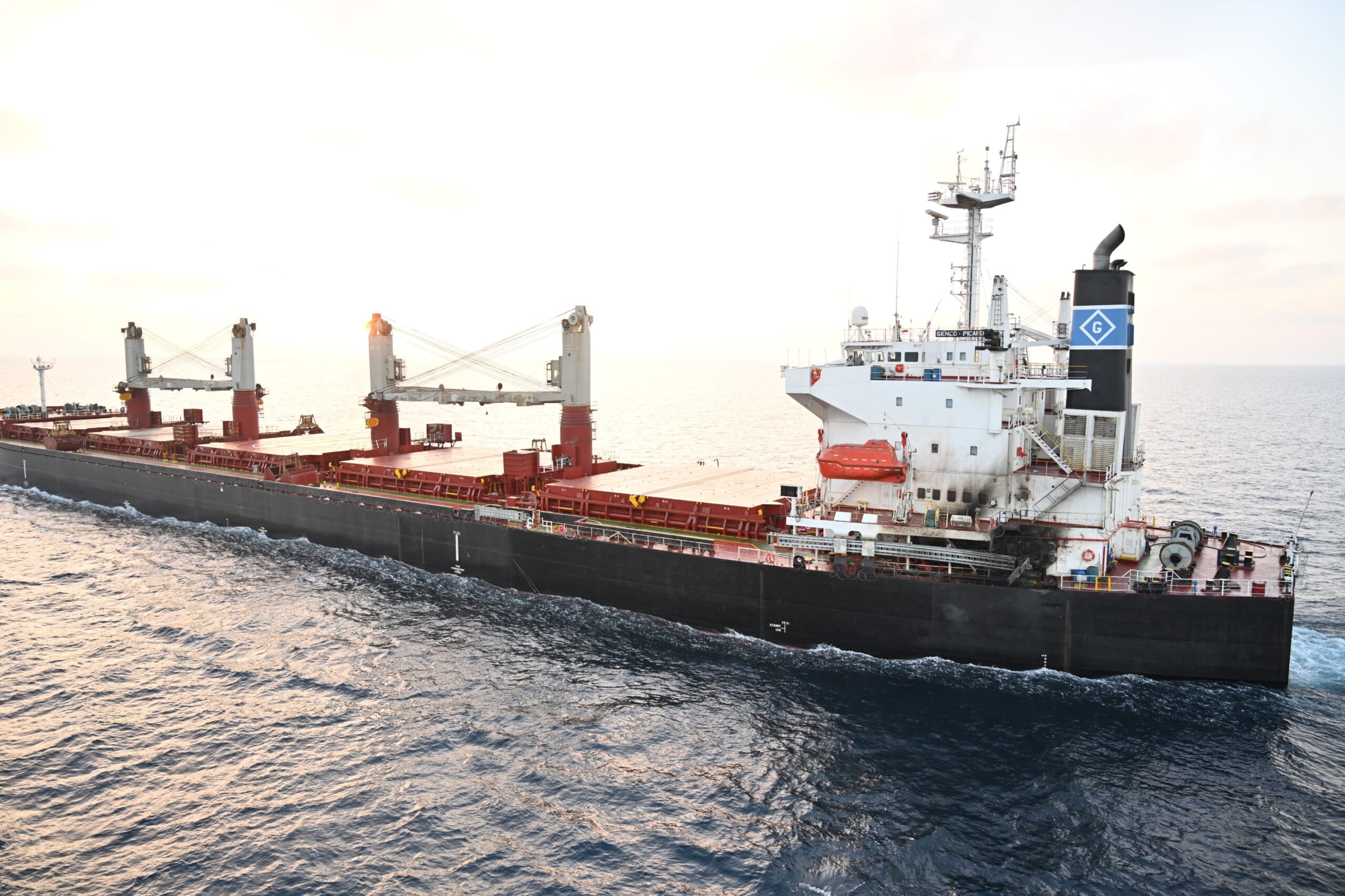An attack on a Liberian-flagged ship with 23 people on board was stopped by the Indian Navy on Monday in the Gulf of Aden. The Navy said that the ship was on fire because of a “drone/missile attack” on March 4 evening, while it was passing about 90 nautical miles southeast of Aden.
The INS Kolkata, a mission ship sent to the area to help with maritime security activities, got to the scene of the accident right on time, at 22:30pm.
Twelve members of a specialized firefighting team from INS Kolkata got on the ship early on March 5 to help with the firefighting operations.
A expert team for explosive ordnance disposal (EOD) also got on board to help figure out what risks were still there.
#IndianNavy swiftly responds to a Maritime Incident in #GulfofAden
Liberian-flagged MV #MSCSkyII transiting approximately 90 Nm South East of Aden was reported on fire due to drone/ missile attack PM 04 Mar.
#INSKolkata, mission deployed in the region for maritime security… pic.twitter.com/AG15Krocjr— SpokespersonNavy (@indiannavy) March 5, 2024
The ship had a crew of 23 people, 13 of whom were Indian. The Indian Navy led the ship to safe waters.
A spokesperson for the Indian Navy said in a post on X that the “unwavering efforts by mission deployed platforms” show the navy’s determination to protect merchant ships and sailors in the area.
A day earlier, Houthi rebels said they were behind the attack in the Gulf of Aden on the Swiss-owned container ship with the flag of Liberia.
A military spokesman for the Houthis, who are allied with Iran, said that they fired “a number of suitable naval missiles” at the ship.
Since the middle of November, the Houthis have been hitting military and commercial ships in and around the southern Red Sea. They say they are doing this to help Hamas fight Israel in Gaza. People in the group have said they will keep hitting ships until Israel stops fighting.
“Preliminary reports show that no one was hurt,” US Central Command said on X. “The ship did not ask for help; it kept going on its way.”
The attacks on ships have forced commercial ships to go around southern Africa instead of through the Red Sea and Suez Canal, which is thousands of miles away. This has caused freight rates to skyrocket.
